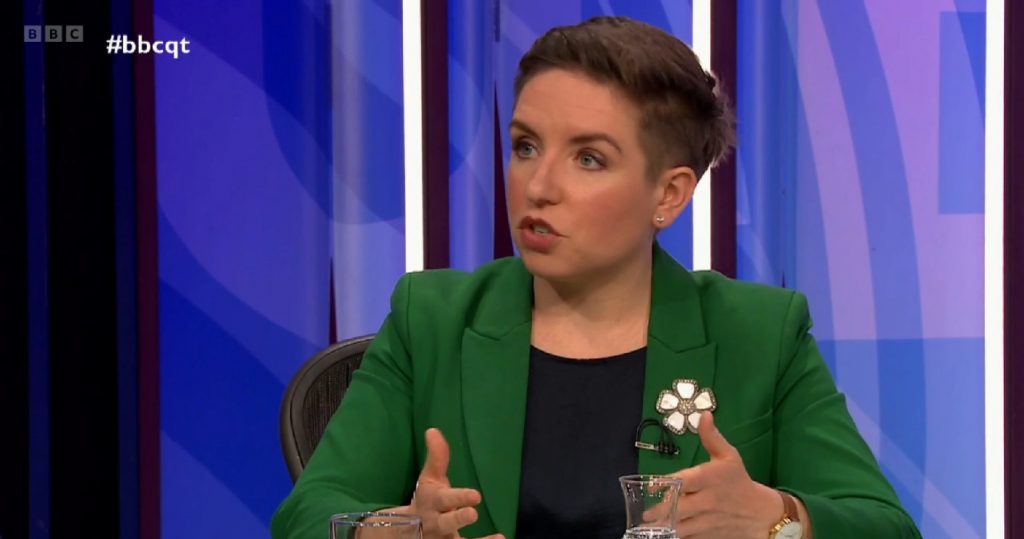Carla Denyer slams Tory plans to rip up environmental protections in housebuilding on Any Questions

Green Party of England and Wales co-leader Carla Denyer made her third appearance on the BBC‘s Any Questions last night. The show was broadcast from Cornwall.
Among the topics for discussion was the Tories’ latest attempt to rip up environmental protections. Last week, the government announced it plans to scrap EU regulations which protect waterways from additional pollution that could result from new housing.
Denyer laid into the government’s plans on the show. Asked whether the government’s plans were necessary to tackle the housing shortage, she simply answered, “No”.
She went on to explain: “It’s not necessary, as evidenced by the fact the nutrient neutrality rule exists all over the EU and most of the European countries have much higher rates of housebuilding than we do.”
Referencing the current scale of pollution in Britain’s waterways, Denyer then said it is “just astonishing that the Conservatives can look at the toxic state of our rivers and beaches and conclude: ‘You know what we need here? Less regulation so that more pollution can be put in.'”
That comment received rapturous applause from the live audience.
She then continued by setting out the Green Party’s position on the housing crisis. She told the audience: “There is absolutely a housing crisis, and I know how much that affects the people of Cornwall. It also affects me and the people of Bristol where I’m a councillor and parliamentary candidate.
“And the solutions to that are not simple. It’s not straightforward. There’s a few different things that need to happen. Yes, we do need to build some new homes. But they need to be the right homes, in the right place, at the right price.
“So, rather than building luxury four, five, six bedroom double garage homes…” Denyer was then interrupted by more applause from the audience.
She continued: “You see, the audience knows what I’m going to say because they agree. And this is what I’ve been hearing back on the doorstep when I go out with local Green councillors all over the country. They’re not against new developments, but they want them to be the right homes. So that actually, usually, means smaller homes – one or two bed – and near a bus stop, near a train station, near a good school, with obviously the infrastructure like sewage infrastructure to make sure that pollution isn’t a natural consequence of building more homes. If you do it right, it can be green, it can be good for the environment.”
PS. We hope you enjoyed this article. Bright Green has got big plans for the future to publish many more articles like this. You can help make that happen. Please donate to Bright Green now donate to Bright Green now.




Leave a Reply